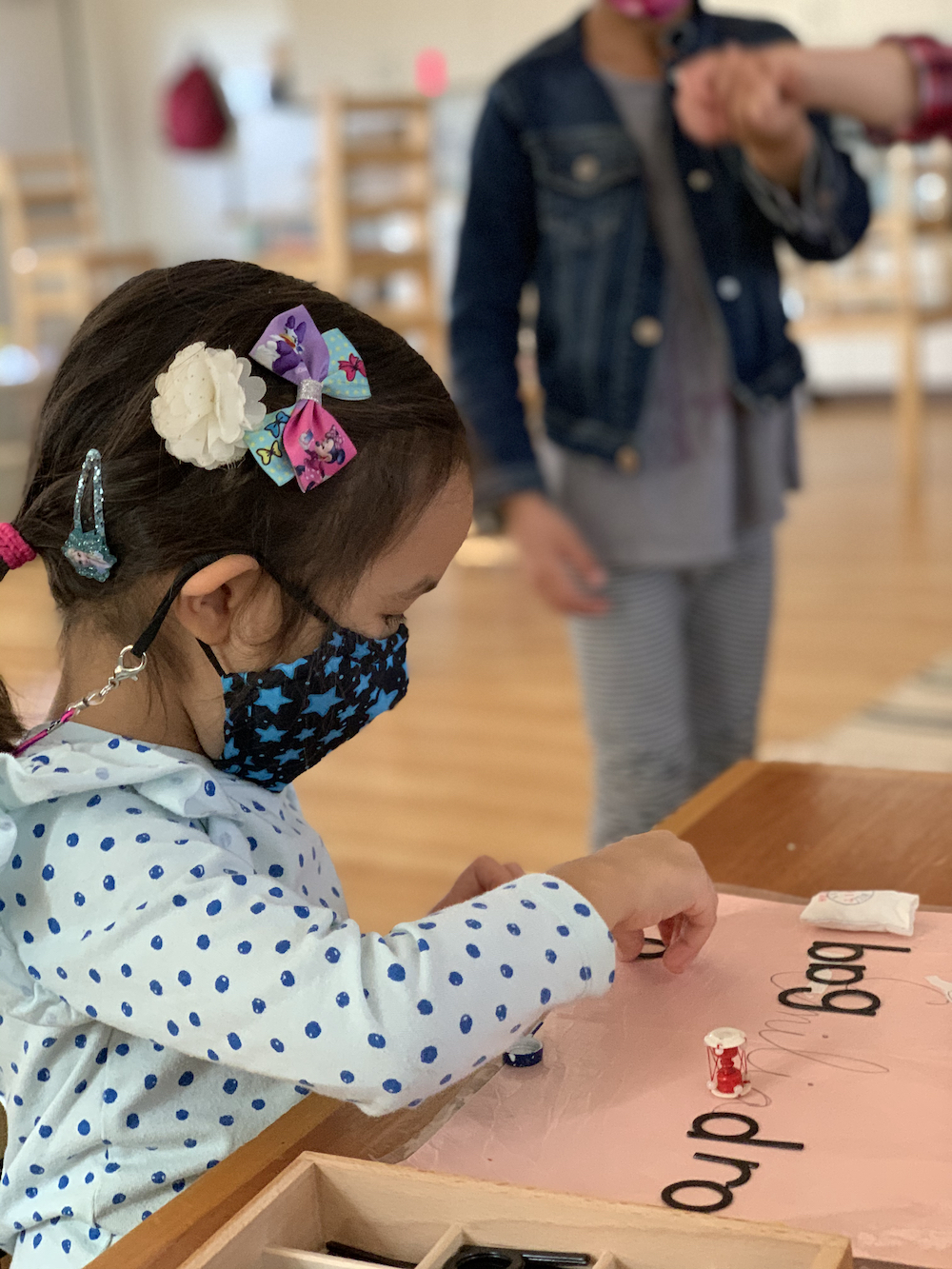(858) 759-0631
The most important component of Montessori teaching and philosophy is respect. Montessori begins by valuing each child’s contribution in a way that brings out his or her best. When you respect your child, he or she will gain self-respect. This will give your child new mental tools towards developing pride and confidence by behaving with honor and dignity.
At Lifetime Montessori School, our teachers use a ‘children should be seen and heard’ philosophy.
We want our students to follow their passions and build their own world. By respecting each child, we help build personality, strengths, academic, social and emotional learning.
Choices and Freedom: Building Your Child From The Inside
Developing self-learning techniques are achieved by first grasping subject matter. Montessori teachers, or guides, apply techniques based on guiding each child towards their own path of self-construction rather than following another child’s path.
Self-construction gives students choices and freedom. For example, each child decides what subject to learn first each day—or learn last--and that self-rule and passion builds self-motivation.
In other teaching genres, teachers rule while kids sit passively.
Montessori teachers ask the questions and let their students do the heavy lifting towards learning. That learning is based on each child’s choosing. In our classes, it’s the students who are moving while the teacher sits at her desk. Our classrooms are filled with young minds asking questions about ‘how and why’ rather than just ‘what.’
Teaching What Students Want to Know Now, Not When the Statewide Syllabus Says
If a Montessori student is ready for specific subject matter (like square roots) and wants to learn it today, a Montessori teacher will teach it today--regardless of whether or not he is required to learn that topic for years. If a student is personally interested in that topic and wants to become more invested in it—great! Now, that adjunct lesson may be basic, but the child conceptually learns it.
Let’s fast forward three years: the child has been swirling those concepts in his brain all this time...bingo! He’ll understand square roots faster and with fluidity. That is a Montessori Difference that pays dividends today and tomorrow.
Montessori Elementary Education: Harmonious and Inter-Related Learning
Parents who continue their child’s Montessori education from Kindergarten through elementary school understand the longtime value of the Montessori school experience.
During the preschool years, parents saw firsthand how their Montessori children grew to understand the world and their place in it. So, they’ve been converted and convinced to continue with a Montessori elementary education because they’ve already seen their children become independent, confident and more aware.
When parents are asked what they want for their children after they graduate Kindergarten, they never say ‘academics.’ Instead, they say ‘compassion, empathy and leadership skills.’ They already expect high academic standards. But they seek the other two parts of the academic, social and emotional construct.
What we teach in Montessori elementary school is the same ‘to-the-letter’ State of California curricula required in all statewide elementary schools. Easily, Montessori students are given a well-rounded academic education equal to any traditional, private or faith-based school.
Here are two differences: marking kids down for mistakes or giving them the ‘right answer’ are not goals. Building simple foundations that evolve into complex and abstract concepts--that’s what Montessorians want to see.
The Flexibility of Montessori Elementary School
Changes in America’s educational and social culture have greatly changed over the decades. Today, both parents are far more communicative with their children. And kids are far more seen and heard than ever before.
Meanwhile, dads are participating in their kids’ well-being by spending far more time with their children than in previous generations. Old School corporal punishment, yelling and spanking are out. Listening, talking and treating children as equals are part of today’s family scene.
Within this generational shift, Montessori has become more relevant than ever. As employers and parents have embraced shifts both in the workplace and attitudinally, so have our opinions changed about how to educate our kids.
Montessori offers a unique slant on raising children, respecting children, celebrating children and giving them rights to study, learn, assimilate, discover and put concepts together aimed at learning how to think.
This is how Montessori elementary school will benefit your graduating Kindergartner—respect your child as a valued part of your family’s team and watch that respect come back to you—and others—big time.

